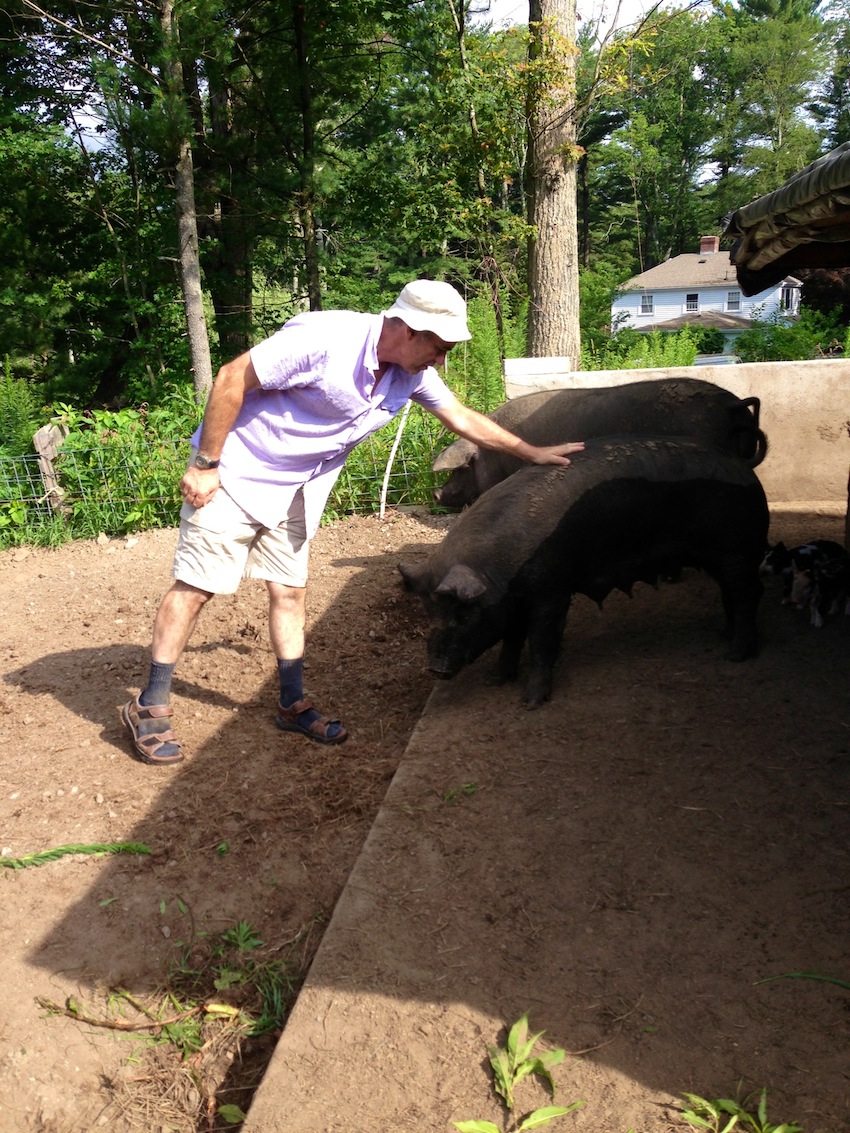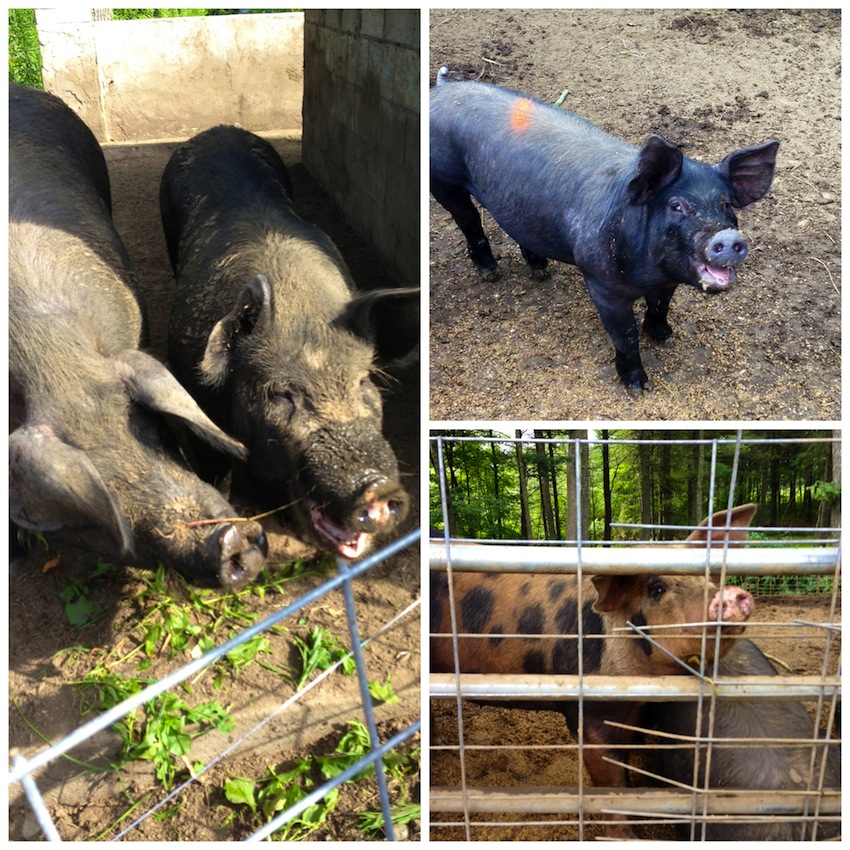This Little Piggy Went to Market: A Morning at Norfolk’s Brambly Farms
Welcome to Supply Chain, where we go behind the plate to get a feel for the day-to-day of Boston’s most relied-upon restaurant purveyors.
The first mistake I make (and the second, and the third, damn you MapQuest) when I trundle down the leafy residential road looking for pig haven Brambly Farms, is this: I’m looking for a typical farm. Signage of some sort, or perhaps a sow leaning up against a fence, waving me in with little light sticks. But after I slow to a crawl and squint at each mailbox number, I find myself at a farmhouse out of a picture book, all white slats and overgrown garden. A few squeals ricochet among the trees along the back of the property. Ah yes, there they are.
Ted O’Harte emerges, seconds behind an enthusiastic dog named Max, bearing ice water. He’s a fifth-generation farmer from Northern Ireland with an easy laugh, and his pigs—Berkshires, Tamworths, Red Wattles, Large Blacks, you name it— are among the favored breeds in town for discerning chefs.
O’Harte and his wife Sandra, who he has known since childhood, hopped across the pond and landed in Boston 29 years ago. They’ve been supplying local chefs with rare, purebred pork at Brambly, along with pastured eggs, for six. “Everybody’s exceptionally friendly, wants us to do well, and likes what we’re producing…except the neighbors,” he says, a good-natured smile lighting up his face as he shrugs. “It’s just about now that they’ve discovered that we’re a pig farm…”
Why anyone would mind living this close to a place where pigs spend their days blissfully eating and romping and wallowing around in mud is beyond me. O’Harte swings his legs over a low fence into a pen where nine five-day-old spotted piglets are prancing around. They eye me warily as they push up against their mother (sows have anywhere from six to twelve piglets at a time, O’Harte tells me as he dodges one underfoot), and scatter at any sudden movements.
“If you’re a dog person, you’re going to like pigs,” he says, patting a Large Black with big, floppy ears. “They all have their own personalities, they’re all super friendly. It’s hard to dislike pigs…cows are even friendlier. They’re a bit like people with no moods.”
The pigs, which are marketed at about eight to nine months old, are fed grain from a local miller, occasionally mixed with excess brewer’s grain from Fort Point newcomer Trillium Brewery. Pines and oaks surround the property, and it’s an acorn free-for-all once they’re in season. There’s no ear notching or castration, and everything shows up to the restaurants 100% intact.
With the addition of new (larger) location in Cooperstown, NY, with O’Harte’s eldest son Cormac at the helm, they plan on scaling back the number of pigs in Norfolk, keeping a few of the star moms around and creating a showcase environment for prospective chefs. O’Harte is also hoping to bring in a few cattle and more poultry to both locations, continuing to widen the scope of their offerings.
“Working with chefs is super easy. They either want a whole or a half pig, so there’s never any fuss,” he says. “They’re never put off by the head or the organs still being there like some people are, and they’re always the most appreciative.”
One such chef is West Bridge’s Matthew Gaudet, who first heard about the farm while cheffing at Aquitaine and outlining initial plans for the Kendall Square mainstay. “Alexis [Gelburd-Kimler, West Bridge co-owner] and I went to visit during construction. The pigs were happy, everything is as natural as it should be, and they had the right philosophy about the process,” he says. “Just cool folk that want to raise cool pigs that taste great—and they do.”
O’Harte admits that this kind of open-field low-production model, which supports about 150-200 pigs, isn’t very typical. “Usually they’re in a concrete shed and everything’s locked up,” he says, shaking his head. “We use zero antibiotics, zero medicines…there’s no need for that garbage. If you cram 500 animals into a half an acre, you’re going to have problems.”
The land is fenced in, but I find it hard to believe the pigs aren’t tempted by the sweet taste of freedom every now and then. “Once in awhile we have an escapee, sure,” he agrees. “We’ve called the cops once, but we got her back fast. The teenagers are the ones you have to watch…just like human teenagers!”
At the end of the day, O’Harte’s approach is elegantly simple. “All you have to do is feed them quality food, give them clean water, keep them cool in the summer and warm in the winter, and they’ll think you’re great,” he says. One of the big guys pokes his snout over a pen wall and snorts in approval.





